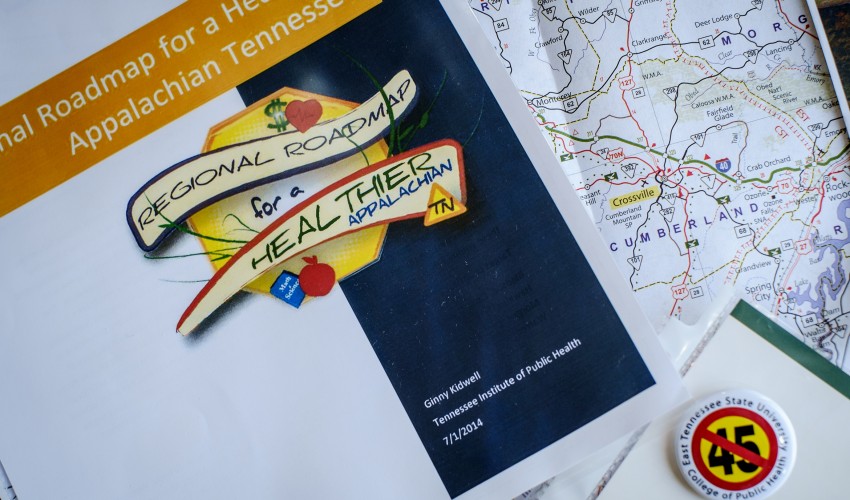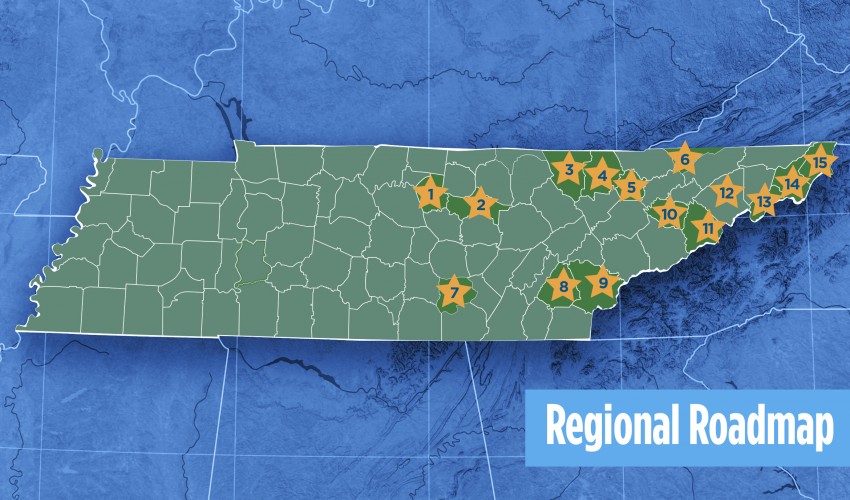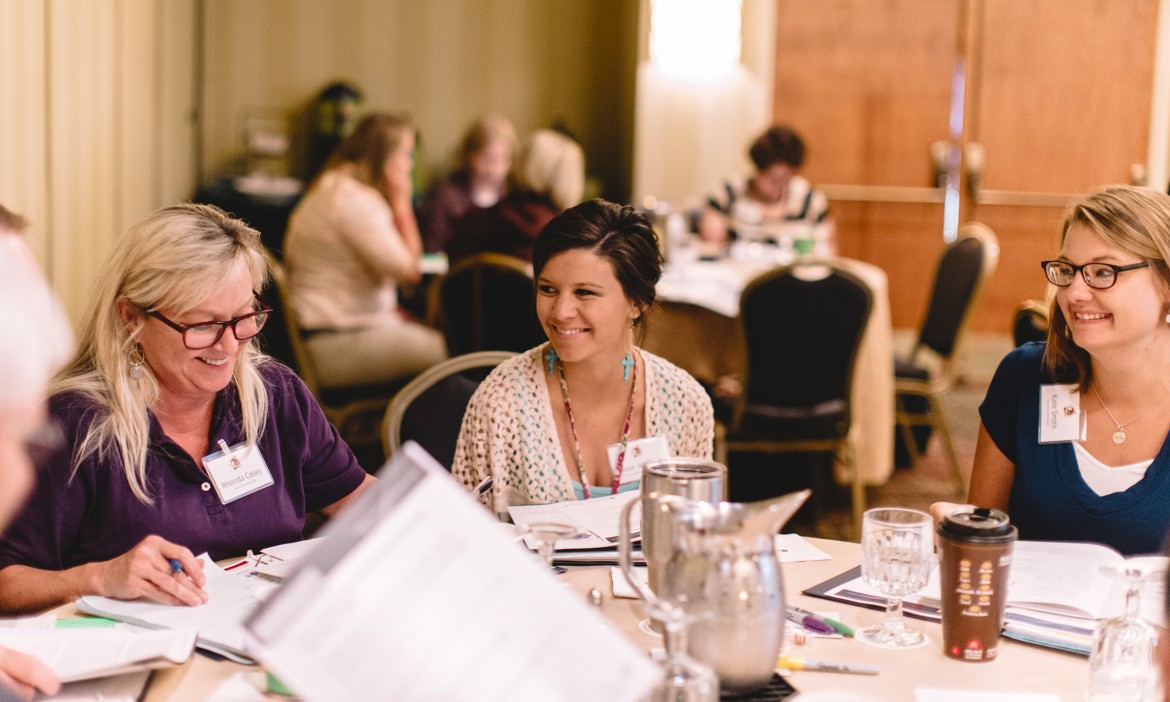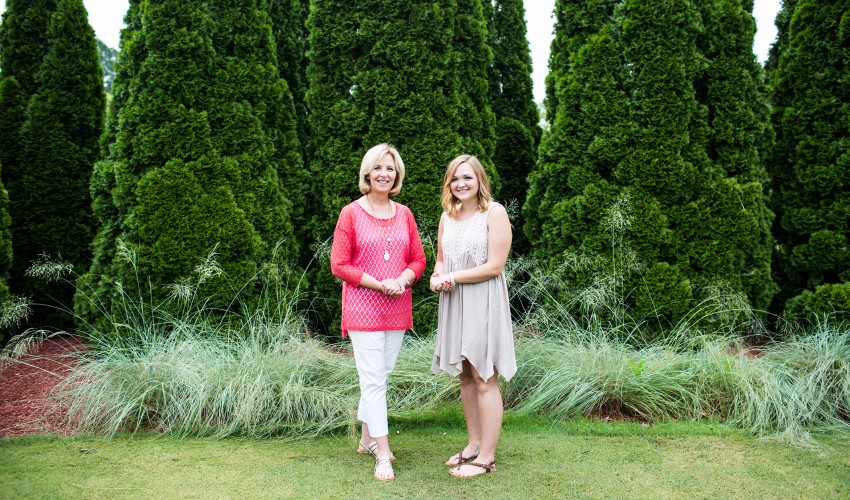Digging through county health rankings isn’t for everybody, but it’s how Ginny Kidwell and her team at the Tennessee Institute of Public Health find ways to make a difference.
“One of my favorite things has always been working at the grassroots level, finding ways we can make the most impact,” she says of her work at the institute, a statewide entity housed at the East Tennessee State University College of Public Health.
“Among other things, we found that 40 percent of someone’s health has to do with personal choices.”
“And that’s the number that got the conversation about the Regional Roadmap for a Healthier Appalachian Tennessee started.”
The idea is simple:
- Get local leaders in education, health and business out of their silos and bring them together to link their expertise.
- Small grants — $2,500 in the first year — would be given to organizations in rural areas.
- The funds would support programs tied into health and wellness initiatives linking local health factors and outcomes with local economics and education.
But there are some traps to be avoided.
“We know that if you march into a community and tell them what to do, they’ll run you right out,” she says.“That’s why we went after community leaders from all different walks of life to take the lead. Mayors, after-school program leaders, Boys and Girls Clubs, anti-drug coalitions, chambers of commerce — we allowed as many different organizations as would take part to do so.”

Kidwell notes many groups find the mini-grants lead to other funding.
First year exceeds goals
That was in 2013, and when it wrapped up 18 months later the Regional Roadmap program hit every target and then some.
Twenty grants were funded in the 32-county economically distressed or at-risk area of Appalachian Tennessee.
Heart disease prevention, youth nutrition, diet and exercise, senior living, and obesity prevention were some of the focus areas, which used everything from dance programs to animal interactions to make their points.
“We saw it go in every direction, from working with young children to workplace fitness,” Kidwell says.
“We developed great partnerships to get the funding established, and everyone who took part really ran with it. These community leaders knew what they wanted to work on, and because we didn’t make them just stick with one topic, they could tell us what they needed, and then we could help them make it happen.”


Applicants presented grants at the Health West Applicant Workshop.
Statewide spread underway
Regional Roadmap will head to rural West Tennessee in its second year with the launch of the 20-county Healthy WEST: Working to Energize and Strengthen Tennessee.
“We’re going to have more money, so we’ll be able to affect more communities,” Kidwell says.
“We’re going to broaden the program to include outreach to 52 counties in Appalachia, and we’ll have two levels of funding:
- $2,500 for single-county programs
- and $5,000 for those that take a more regional approach.”
New participants will learn from the inaugural group, which will be launching new programs and pursuing additional dollars for future projects.
“Money makes money,” Kidwell says.
“A lot of groups leveraged this mini-grant to raise money in other ways. One group added health education to existing arts programs, and got the mayor on board as an advisor. Another group has gotten the USDA to help them set up a pumpkin patch and community garden, which will help with healthy-food education and tourism.”
“This program has lit a spark.”

Learn more about Regional Roadmap:






